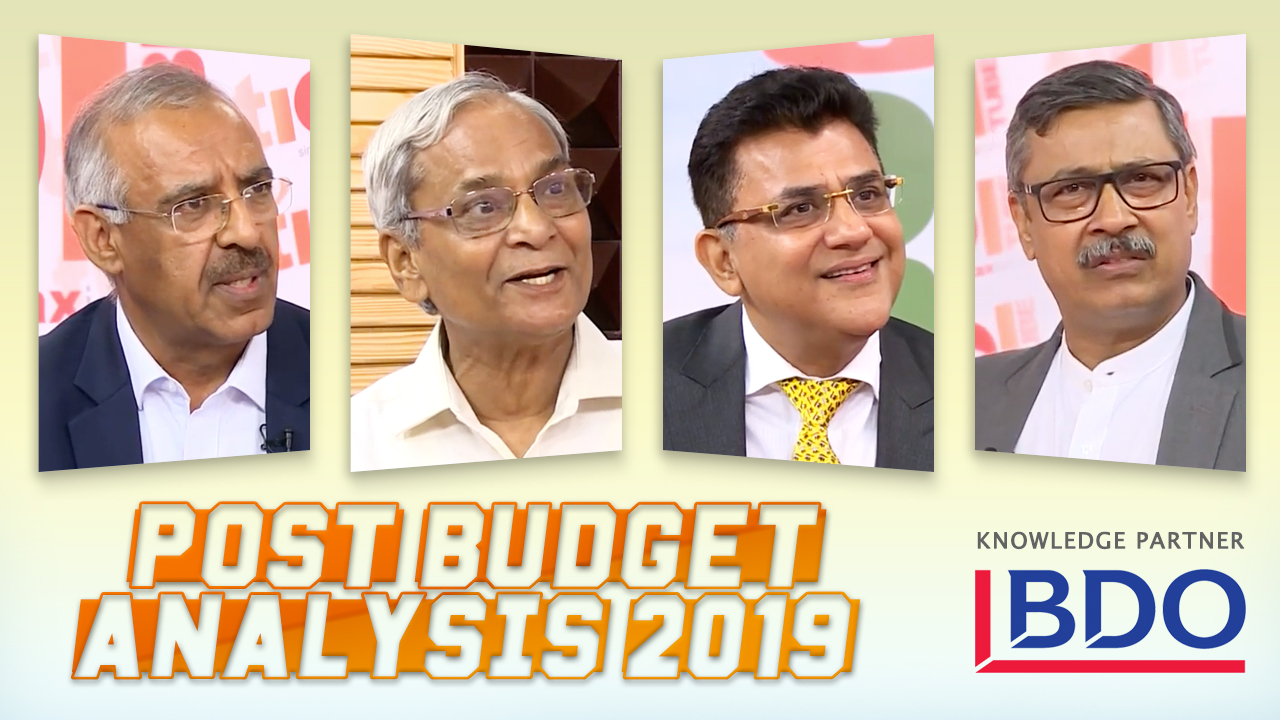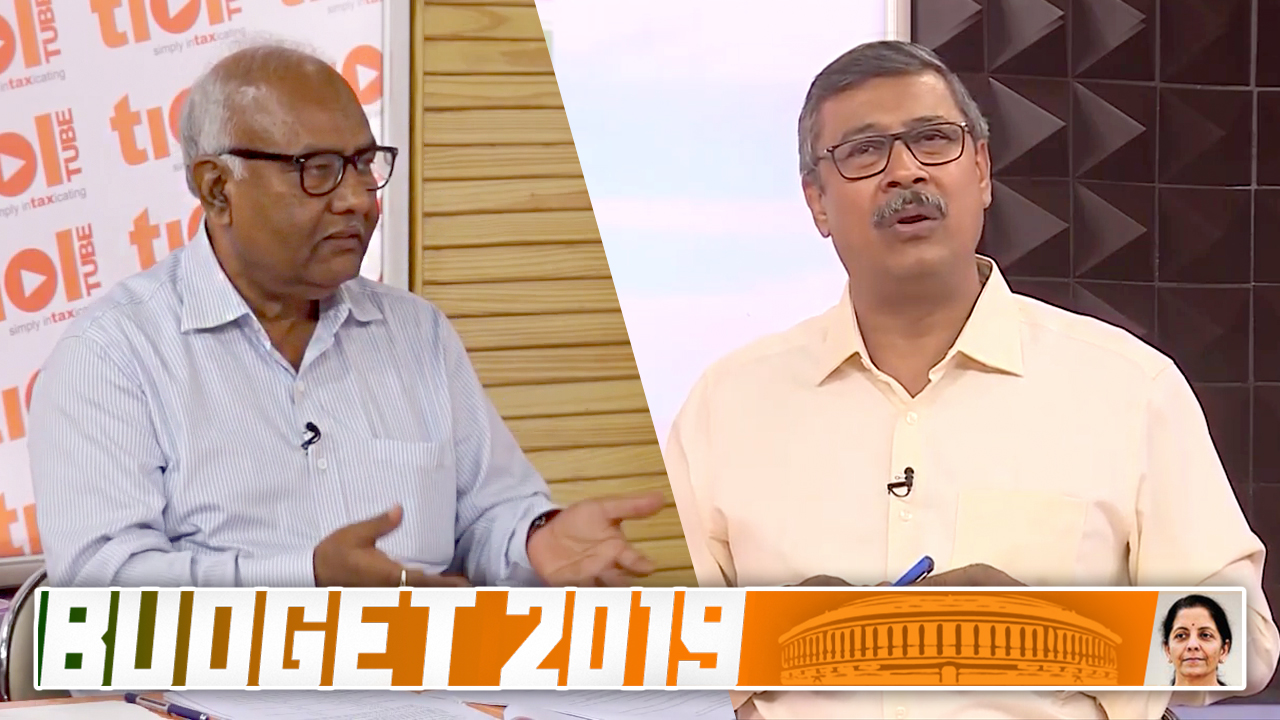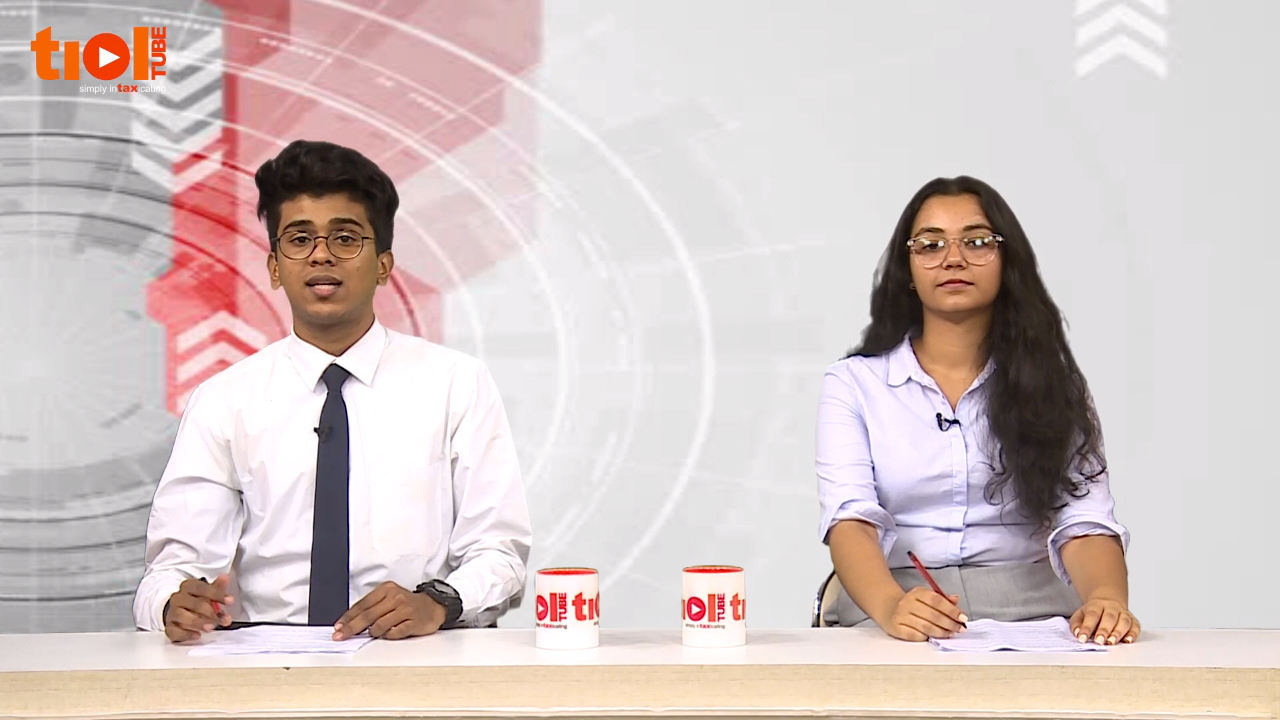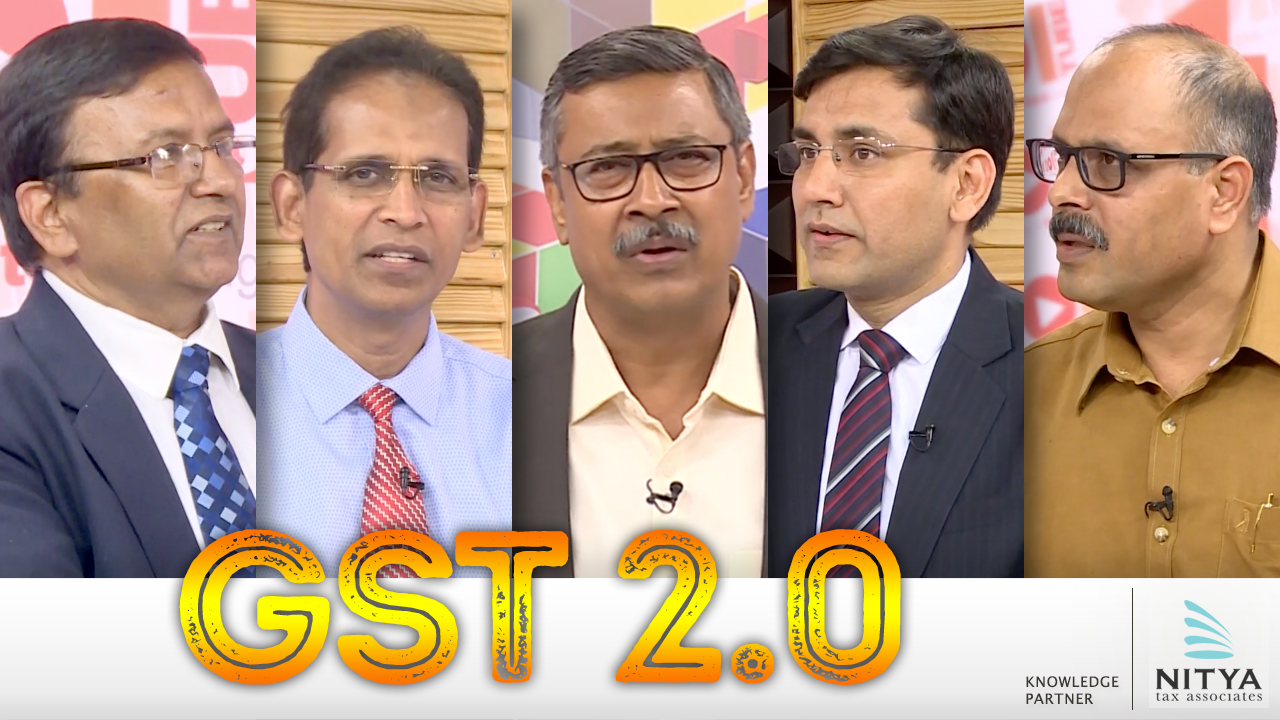|
SERVICE TAX
2019-TIOL-1415-HC-MUM-ST
Konkan Railway Corporation Ltd Vs UoI
ST - It is the case of the petitioners that the present matter is identically placed in facts and law to that of M/s. Bharuch Dahej Railway Co. Ltd. which has been decided by the Commissioner of Service Tax, Delhi and Revenue appeal against this order has been dismissed by CESTAT [2019-TIOL-1175-CESTAT-DEL]; that therefore, in view of the Revenue's appeal being dismissed on 25th March, 2019 and not further challenged by the Revenue, the impugned order also be set aside - This on the premise that persons similarly situated be treated equally is fundamental requirement of Rule of law.
Held: Counsel for the Revenue states that the challenge to order of the Tribunal dated 25th March, 2019 is under active consideration of the Revenue; that if an adjournment of four weeks is given, he will be in a position to inform the court whether the order dated 25th March, 2019 of the Tribunal in respect of M/s.Bharuch Dahej Railway Co. Ltd. - 2019-TIOL-1175-CESTAT-DEL has been accepted by the Revenue or not – Petition adjourned to 1 st August 2019: High Court [para 3, 5, 6]
- Petition adjourned: BOMBAY HIGH COURT
2019-TIOL-1414-HC-MUM-ST
Ess Infraproject Pvt Ltd Vs UoI
ST/GST - Petitioner seeks a declaration that Respondents do not have power under Rule 5A of the Service Tax Rules, 1994 read with Section 174(2)(e) of the CGST, 2017 to conduct audit for the period October 2013 to June 2017 i.e. prior to the introduction of CGST Act and, therefore, seeks setting aside of communications of the respondent Additional Commissioner, GST & Central Excise, seeking to audit petitioner's records for the said period.
Held: High Court notes that the decisions of Gujarat High Court in OWS Warehouse Services LLP - 2018-TIOL-2194-HC-AHM-ST, Delhi High Court in M/s. T.R.Sawhney Motors Pvt. Ltd. (dated 11.03.2019) and Jharkhand High Court M/s. Sulabh International - 2019-TIOL-808-HC-JHARKHAND-GST (dated 04.04.2019) relied upon by the petitioners were all at the ad interim stage subject to further consideration by the Courts itself on the next date - therefore, not much support can drawn by the petitioner on the basis of the above decisions as they are still awaiting consideration - So also the reliance upon the judgment of Delhi High Court in Mega Cabs Pvt. Ltd. - 2016-TIOL-1061-HC-DEL-ST is misplaced as the same has been stayed by the Supreme Court - 2016-TIOL-162-SC-ST - However, the issue of the saving of Rule 5A(2) of Service Tax Rules, 1992 on introduction of CGST Act, 2017 is an issue that requires detailed consideration and which would be appropriately done at the final hearing - Granting of interim relief at this stage would tantamount to granting final relief at the stage of admission - Moreover, the balance of convenience is against the petitioner - Grant of interim relief at this stage would prevent the respondents from carrying out audit as permitted under Rule 5A of Service Tax Rules, 1994 and Section 174(2)(e) of the CGST Act - At the final hearing, if the challenge is negatived, there would be a delay in conducting the audit which would then result in difficulty as papers and persons who are in a position to be respond to audit queries may not be available and/or their memories may fail - Besides any action to be taken pursuant to the audit may become time barred, if not already so - No prejudice will be caused to the petitioners if it subjects itself to audit at this stage - If any further proceedings are taken on the basis of audit report against the petitioners, they are at liberty to move the Court for interim relief: High Court [para 5, 6]
- Matter posted/No interim relief: BOMBAY HIGH COURT
2019-TIOL-1922-CESTAT-MUM
Qualcomm India Pvt Ltd Vs CCE & ST
ST - CENVAT - Rent a cab service, convention service, club or association service used in rendering output service availed prior to 01.04.2011 is held to input service - Credit admissible: CESTAT [para 10]
ST - In the matter of the earlier and subsequent refund claims allowing cash refund of accumulated CENVAT Credit under Rule 5 of CENVAT Credit Rules 2004, the department has accepted that the service rendered by the Appellant to Qualcomm, USA are export services in terms of Rule 3(iii) of Export of Service Rules, 2005 - No evidence has been placed on record indicating that on appeal has been filed against these orders by the Revenue and it is held to be not an export services by any Appellate forum - Therefore, denial of cash refund of accumulated credit due to export of service for the interregnum period, is unsustainable - Impugned orders are set aside and appeals are allowed with consequential relief: CESTAT [para 9]
- Appeals allowed: MUMBAI CESTAT
2019-TIOL-1921-CESTAT-MUM
Rekha Kailash Yadav Vs CCE & ST
ST - Department was having knowledge of the affairs of the Appellant in view of the earlier show cause notice dated 22.10.2012 - Therefore, the subsequent show cause notice dated 24.01.2016 for the period 2012-2013 & 2013-2014 and SCN dated 04.04.2016 for the period April 2014 to Sept. 2014 resulting in the impugned order is bad in law in invoking the extended period of limitation - Insofar as extending the benefit of cum-tax is concerned, it is an admitted fact that the Appellant has not collected Service Tax separately and, therefore, the Commissioner (Appeals) has rightly allowed the cum duty benefit - impugned order is set aside and the appeal is allowed - appellant is entitled to consequential benefits: CESTAT [para 7, 8]
- Appeal allowed: MUMBAI CESTAT
CENTRAL EXCISE
2019-TIOL-1920-CESTAT-BANG
Bayir Extracts Pvt Ltd Vs CCT
CX - The assessee, a 100% EoU carried out commercial production till 1999 and became defunct thereafter - It entered into an agreement with another company & added more machinery to the plant and commenced manufacture of herbal extracts on behalf of the latter - The assessee also produced the same on behalf of a third company, on job work basis - The entire activity was carried out without informing the Customs Department, without de-bonding the goods and without seeking permission from the Development Commissioner to remove the finished goods into DTA - Searches were also conduced by the Revenue in the factory and premises of all the connected persons, whereupon many incriminating documents, raw materials, semi-finished goods & capital goods were seized - The assessee admitted the offence and suppression of job work in EoU without prior permission & pre-deposited duty as Govt dues in advance & requested for leniency - SCN was issued raising duty demand with interest & imposing penalties - Such demands were sustained by the adjudicating authority & were upheld by the Commr.(A) - The Tribunal then remanded the matter - On re-adjudication, the duty demand was requantified - The same was sustained by the Commr.(A), who also imposed penalty - The present appeal is filed against the penalty - Hence the present appeal.
Held: The assessee deposited an amount under protest, which takes care of duty and interest components - The same was paid before issuance of SCN - The decisions relied upon by the assessee are inapplicable to the present case since there is suppression of facts with intent to evade payment of duty - In de novo proceedings, the authorities also held there to be suppression of facts & so imposed equivalent penalty - However, it is settled law that even if there is wilful suppression of facts with intent to evade payment of duty, the assessee is liable to pay duty only to the extent of 25% of the duty amount, as per Section 11AC - Besides, the option of paying 25% of duty will commence from the date of the appellate order - Hence the assessee is only liable to pay 25% of the actual duty - The penalty imposed by the Commr.(A) is quashed: CESTAT
- Assessee's appeal partly allowed: BANGALORE CESTAT
2019-TIOL-1919-CESTAT-MAD
CCE Vs AR Metallurgicals Pvt Ltd
CX - The assessee-company manufactures Iron and Steel Ingots - Relying on specific intelligence, the DGCEI officers visited the assessee's premises and verified records, seized documents and recorded statements of some employees and the company's MD - Thereafter, SCN was issued alleging clandestine removal of ingots - It was stated that the assessee maintained two different invoices of the same number, carrying different dates and different values but the assessee had accounted for only one of the invoices - The Revenue also claimed to have noticed shortage of some quantity of MS Ingots as well as a difference between the physical production quantity - It was also alleged that some quantity of MS Ingots were cleared without payment of duty - The Revenue also stated that statements of drivers confirmed the transportation of MS Ingots from factory to a certain go-down while those of the MD admitted to the modus operandi of clandestine removal - Duty demands were raised with interest & penalty u/s 11AC r/w Rule 26 of CER 2002 along with personal penalty on the MD - On appeal, the Commr.(A) quashed the demands for want of corroborative evidence, for no corroboration of excess consumption of raw material or power & evidence of excess production - It was also noted that the assessee was denied opportunity to cross-examine the deponents of statements - Hence the Revenue's appeal.
Held: It is settled position in law that no uncorroborated statement of some person can be used against any other person - Also that every person has the right to cross examine the person whose statement is being used against him - But then even if the statements of some employees, MD and drivers are to be discarded, the fact remains that the assessee maintained duplicate/double invoices of the same number - Such fact is not rebutted - In such circumstances, the charges of clandestine removal will sustain only in respect of the duplicate invoices maintained by the assessee & brought on record by the Revenue - Hence the matter warrants remand to re-calculate the duty demanded: CESTAT
- Revenue's appeal partly allowed: CHENNAI CESTAT
CUSTOMS
2019-TIOL-1421-HC-MUM-CUS
Solanki Shipping Agency Vs UoI
Cus - The issue at hand in the present appeal is whether the CESTAT can refer to statements recorded during investigations u/s 108 of the Customs Act, by holding the same to be admissible in proceedings under the CHALR 2004.
Held - The Revenue claimed that this Court in The Commissioner of Customs (General) Vs. The West End Shipping Agency had held such statements recorded u/s 108 of Customs Act to be inadmissible during proceedings under CHALR 2004 - Besides, the issue is kept open for consideration by this Court in the appeal of the Revenue in the cited case - Hence the present appeal requires consideration: HC
- Case deferred: BOMBAY HIGH COURT
2019-TIOL-1420-HC-KOL-CUS
Mursaleen Mohammad Vs UoI
NDPS - Customs - The appellant was apprehended at Kolkata airport, on the basis of certain secret information - The appellant was detained by the AIU & was taken for interrogation, whereupon he denied having carried any contraband - As the AIU officials were suspicious of his movements, they sought to conduct X-ray examination on the appellant, whose permission was obtained for carrying out such procedure - The x-ray report revealed suspicious white shadow in the abdomen region - Later, the appellant visited the toilet, whereupon 49 capsules were recovered - The contents of the capsules tested positive for Hashish - The contraband was seized, SCN was served u/s 67 of the NDPS Act and the appellant's statements were taken, based upon which the appellant was arrested - Thereafter, complaint was filed u/s 21(b) & 23(b) of the NDPS Act & charges were framed against the appellant - During trial, the appellant retracted his statements and claimed to have been compelled to sign black papers during his detention - The Trial Court sentenced the appellant with 7 years RI along with fine - Hence the present appeal.
Held - A perusal of the provisions u/s 103 of the Customs Act calls for magisterial intervention not only for the purpose of holding X-ray of the body of the suspect but also requires magisterial permission for undertaking suitable action for recovery of the contraband secreted inside the body upon receipt of report of the radiologist - magisterial permission for conducting X-ray of the suspect is not a substitute of the subsequent magisterial sanction for undertaking suitable action to bring out the contraband in the presence of a registered medical practitioner upon receipt of the X-ray report - Hence, consent taken from suspect for conducting X-ray of his body cannot be treated as valid consent u/s 103(8) of the Act so as to waive the requirement of magesterial permission for taking suitable action to bring out the contraband in presence of a doctor upon receipt of X-ray report - Moreover, the radiologist who conducted the X-ray was not examined - He did not send his report along with X-ray plates to the magistrate for suitable action - Hence it cannot be said that the report of the radiologist along with X-ray plates was duly proven - It is settled law that mere production of a document is no proof of its contents - Hence the radiologist who conducted the X-ray and prepared the report ought to have been examined - Failure to prove the link between discovery of contraband inside the appellant's body and the reasonable belief of the officers, beyond reasonable doubt, snaps the chain culminating in the recovery of the said contraband from the excreta of the appellant & destroys the very substratum of the prosecution case - Thus, the prosecution failed to prove that it followed the procedure laid down u/s 103 of the Act for recovery of contraband: HC
Held - Retraction of statements - The prosecution claimed that the appellant's statements had not been retracted promptly - It is evident from the appellant's cross examination and statement taken u/s 313 of CrPC, that he disowned making such statements and retracted them during trial - It is the prosecution's duty to prove the voluntary statements of the appellant beyond reasonable doubt - In the present case, the evidence is too flimsy & contradictory - Hence the conviction of the appellant is set aside: HC
- Appeal allowed: CALCUTTA HIGH COURT
2019-TIOL-1419-HC-MUM-CUS
Technicom Systems India Pvt Ltd Vs DCC
Cus - Relying upon stray sentence in the paragraph of the decision of Bombay High Court in the case of Prince International, it is not open to the Petitioners to urge that there has been no valid service upon the Petitioners since the factual position in case of Prince International is quite at variance with the factual position in the present case - no good ground to interfere with the order in original or in that matter the impugned notice/communication which flow from order in original in the exercise of writ jurisdiction under Article 226 of the Constitution of India - Petition dismissed: High Court [para 16, 19, 20]
- Petition dismissed: BOMBAY HIGH COURT
2019-TIOL-1418-HC-MUM-CUS
Aisha Electronics Vs UoI
Cus - It is the case of the petitioners that the impugned order-in-original dated 24th October 2017 was made in violation of principles of natural justice and by ignoring the mandate of Section 138B of the said Act and, therefore, this Court should exercise its discretion and entertain these petitions under Article 226 of the Constitution of India without relegating the petitioners to avail alternate remedy of appeal as provided under Section 129A of the said Act.
Held: Bench is satisfied that the complaint of the petitioners is really not that they were afforded no opportunity whatsoever to meet the case against them but it is the case of the petitioners that they were afforded 'no adequate opportunity' - In the facts and circumstances of the present case, however, no case is made out to entertain these writ petitions when there is really nothing demonstrated as to why the petitioners cannot avail the alternate remedy of appeal, which is very much available to them - The contention that the requirement of pre-deposit itself constitutes a hardship, is neither pleaded nor elaborated - In any case, once the constitutional validity of such provision is upheld, High Court is not inclined to issue any writ or direction to the Appellate Authority to waive such mandatory requirement and entertain the petitions – Petitions dismissed: High Court [para 13, 21, 23, 24]
- Petitions dismissed: BOMBAY HIGH COURT
2019-TIOL-1417-HC-MUM-CUS
AB Paul And Company Vs UoI
Cus - Appeal had been dismissed by the CESTAT for failure to make the pre-deposit of amounts (of 25% of penalty amount) as directed u/s 129E of the Customs Act, 1962 - Petitioner's application for modification was also rejected by CESTAT - Now, the petitioner has deposited the entire penalty amount of Rs.15 lakhs imposed by the adjudicating authority and filed the present petition to revive its appeal before CESTAT.
Held: Petitioner has chosen to directly to come to the High Court without making any application to the Tribunal, which the Bench does not appreciate - If there are changed circumstances, which according to the Petitioner, warrant the earlier order being recalled, then the party has to move the Tribunal whose order is sought to be recalled before moving this Court - There is no reason for the apprehension that the Tribunal may not entertain their application - therefore, no appeal from an order dismissing a rectification application is entertained by this Court under Section 130 of the Act - Original order dated 29.10.2014 of Tribunal dismissing the appeal was never challenged before the High Court - Bench is not inclined to entertain the petition - Petition dismissed: High Court [para 4 to 6]
- Petition dismissed: BOMBAY HIGH COURT
2019-TIOL-1416-HC-KAR-CUS
Kivi Sansho Packaging Pvt Ltd Vs UoI
Cus - It is not in dispute that the EPCG Committee has taken a decision in its meeting convened permitting petitioner No.1 to transfer EPCG authorization to petitioner No.2 - It is the grievance of the petitioners that the customs department cannot proceed against the decision of the EPCG Committee - these factual aspects are brought to the notice of respondent No.2 in the reply filed by the petitioners - In such circumstances, the final decision is required to be taken by respondent No.2 - adjudicating authority - results of the adjudication by respondent No.2 being directly related to the EODC, to be issued by respondent No.4, it will be appropriate for Court to direct respondent No.4 to consider the representations of the petitioners and the rectification letters and take a decision inasmuch as the issue of EODC in favour of petitioners in an expedite manner - respondent No.4 shall take a decision in accordance with law in an expedite manner, preferably within a period of four weeks - It is made clear that respondent Nos.2 and 3 shall adjudicate the matter and take a decision after considering the objections as well as the decision of respondent No.4 on the representations submitted by the petitioners preferably within a period of four weeks from the date of the receipt of the order of respondent No.4 - Petitions disposed of: High Court [para 5, 6]
- Petitions disposed of: KARNATAKA HIGH COURT
2019-TIOL-1918-CESTAT-MUM
Advanced Micronic Devices Ltd Vs CC
Cus - Denial of benefits of concessional rate of duty under notfn 21/2002-Cus along with imposition of consequential interest and penalty much after clearance of goods by invoking extended period is assailed by assessee - There is no denying of the fact that concessional rate of duty is applicable to D.C. Defibrillators for internal used and pace makers - O-I-O reveals that catalogue of D.C. Defibrillators imported by the importer was examined by adjudicated authority but in para 5 of his order the Commissioner (A) had given his finding that assessee could not produce any evidence that catalogue was submitted before assessing Officer along with Bill of Entries which was submitted in 2006 as stated by Vice President Mr. Badrinath Sirsi in his statement recorded by the Customs Officer - Catalogue Annexed to the appeal memo vide Exhibit-A does not reveal that the said D.C. Defibrillators is meant for external use or internal use but going by the judgement of Supreme Court passed in BPL - 2015-TIOL-99-SC-CX , if such D.C. Defibrillators is attached with its accessories called paddle, the same can be considered as D.C. Defibrillators meant for internal use - Common knowledge obtained from the literature of D.C. Defibrillators indicates that main accessories of such units are paddles - Therefore paddles if used in D.C. Defibrillators which is required to correct irregular heartbeats in more critical and emergency situation had to be regarded as D.C. Defibrillators for internal use - But on closed scrutiny of O-I-O and O-I-A, it would reveal that their understanding of term "internal use" lacks clarity - In the OIA the adjudicating authority had given his observation that even when D.C. Defibrillators for external use which is equipped with internal paddles, the same remains D.C. Defibrillators for external use only - Contrary to such findings, the Commissioner (A) observed in OIA that the catalogue nowhere speaks about internal use of such D.C. Defibrillators and says that at the best it can be used inside and outside the hospital - Now the question comes if internal use is also to be equated with use in internal organ through implementation process because in OIO, reference to the weight of the machine i.e. 5.9 kg. was made to justify that it was not implantable - However, going by the decision in BPL , which was based on the opinion of one Mr. Jerry Potts, it can be observed that implantable D.C. Defibrillators are definitely distinct from internal Defibrillator used during surgery to counter-shock the heart - This being so, though D.C. Defibrillators can be interchangeably used as internal or external D.C. Defibrillators, the very fact that paddles were imported along with it as it is necessary accessory, when put to use, the imported goods can be put in the category of the internal D.C. Defibrillators for which exemption notification is applicable - In the instant case not only Bill of entry, accessories attached to D.C. Defibrillators clearly reveal that the said machinery was imported for internal use for which exemption notification is rightly applicable - Tribunal refrained itself from discussing on the issue pertaining to applicability of extended period on the ground of mis-declaration and legality of order of Commissioner (A) dropping redemption fine: CESTAT
- Appeal allowed: MUMBAI CESTAT |







